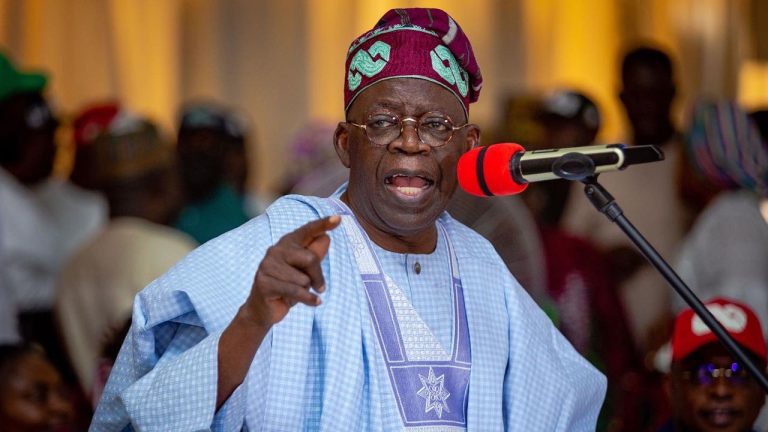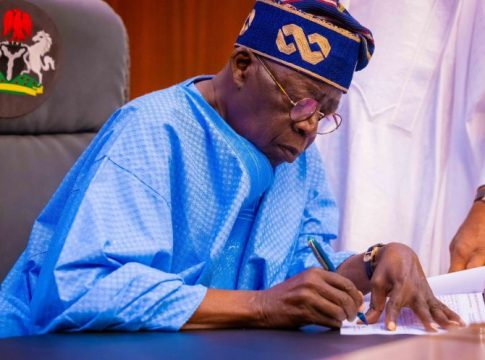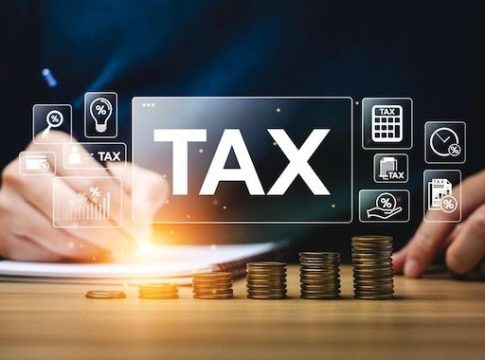President Bola Tinubu’s address on Democracy Day, celebrated on June 12, 2024, marks a significant moment as Nigeria commemorates 25 years of uninterrupted democratic governance. He reflects on the historical journey since the pivotal 1993 presidential election, underscoring the sacrifices made by heroes like Chief MKO Abiola, Kudirat Abiola, and others who laid down their lives for the democratic cause.
President Tinubu honored the memory of various pro-democracy activists and journalists who endured hardships, including exile, to keep the spirit of democracy alive amidst military dictatorship. He acknowledged the collective effort that led to the end of military rule in 1999, positioning Nigeria as a leading democracy in Africa and a beacon of hope for the black race globally.
As the nation celebrates this milestone, President Tinubu emphasized that democracy is more than just a system of government; it’s a way of life that ensures every Nigerian has the freedom to live, think, and participate in shaping the country’s future. He reiterated his commitment to preserving and nurturing democratic values, ensuring that Nigeria remains on the path of progress and that the sacrifices of those who fought for democracy are never forgotten.
He stated;
“While elections often capture significant attention, they represent only a segment of democracy. Democracy embodies a comprehensive lifestyle, within which elections play a part. Hence, it is possible for a nation to conduct elections and still not embody democratic ideals. However, true democracy cannot exist without the process of elections.
“Our commitment to conducting transparent, open, and fair elections validates our adherence to democratic principles. Our history of peaceful government transitions further solidifies our democratic nature.
READ MORE: Malawi VP Saulos Chilima, 9 Others Perish In Plane Crash
“Dear compatriots, democracy profoundly influences the everyday lives of its citizens, providing the freedom and liberty to think independently, choose our living conditions, and engage in legitimate pursuits that resonate with us.
“Importantly, democracy welcomes a diversity of thoughts and opinions rather than enforcing a uniform consensus. The very essence of democracy accommodates contrasting viewpoints and perspectives, enriching the human experience.
“Democracy advocates for resolving differences not through coercion or suppression, but by recognizing and allowing perspectives different from our own.
“Unlike other forms of governance that may impose upon the populace, democracy seeks to ensure that leaders act as stewards of the public good rather than as overseers of narrow vested interests.
“My fellow Nigerians, twenty-five years ago, our nation stood at a crossroads, faced with the choice between embracing a brighter future or continuing under the shadow of dictatorship.
“We chose wisely then, and we must persist in that choice today.
“We, as Nigerians, should remember that despite its complexities, democracy remains the superior form of governance in the long haul. We must be vigilant against those who seek to exploit current difficulties to weaken, or worse, dismantle, this hard-won democracy for personal gain.

“Such adversaries do not aim to improve the communal well-being but to exert their dominion, reducing those outside their circle to lesser stature and autonomy.
“This challenge is a significant reason why we celebrate Democracy Day with special fervor.
“My fellow Nigerians, our democracy is an enduring phenomenon, not merely a historical footnote.
“The essence of this day extends beyond commemorating past achievements to embracing democracy as an active, living entity.
“We honor those who sacrificed everything to lay the foundations of our nation, recognizing my unique position as both”
Addressing the nation on Democracy Day, President Tinubu acknowledged the longstanding need for economic reform within Nigeria, addressing the historical dependency on oil revenues which has resulted in economic imbalances. He outlined the aims of the current reforms to build a more resilient foundation for the country’s future, despite the hardships they might have caused in the short term, emphasizing their importance for ensuring universal access to economic opportunities and fair compensation.
President Tinubu pledged to maintain open lines of communication with the public throughout the reform processes and highlighted the government’s commitment to working collaboratively with organised labor regarding the establishment of a new national minimum wage. He noted this approach was chosen over coercion, underscoring the importance of dialogue and compromise as democratic principles guiding his administration.
In conclusion, He affirmed his dedication to advancing policies that promote equity and fairness, with the ultimate goal of constructing a Nigeria free from oppression. Echoing Franklin Roosevelt, President Tinubu conveyed that while challenges persist, stagnation is not an option; the nation must keep progressing towards a brighter, democratically sustained future. He called for collective effort in moving Nigeria forward, emphasizing the critical role of democracy in achieving the nation’s aspirations.




